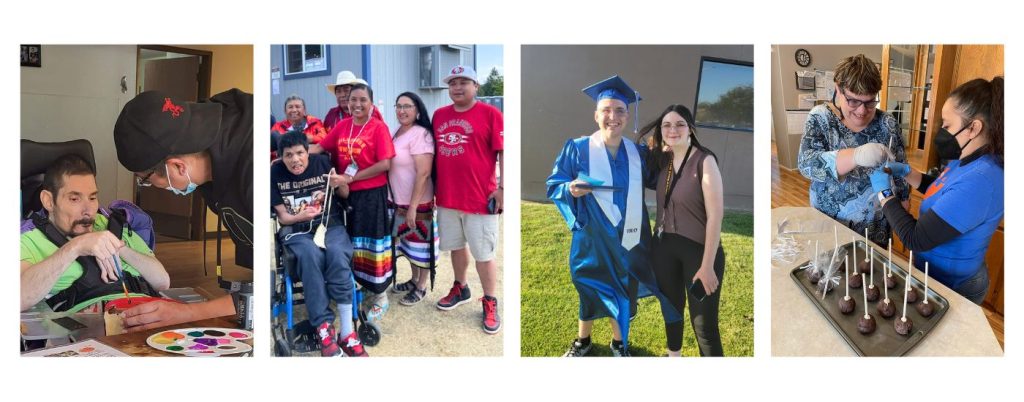
“Natural supports are informal relationships with family, friends, neighbors, and community members that serve as a source of connection and support, and as a safety net.” [1]
“Identifying natural supports and recognizing them as sources of assistance can help people improve their everyday lives at home and at work.” [2]
“The term “natural supports” is often used when speaking about people with disabilities, but they are really just an extension of what people without disabilities do for each other in the workplace, at home, or in the community. Natural supports can be a coworker, supervisor, community member, friend, or family member that supports an individual with disabilities.” [4]
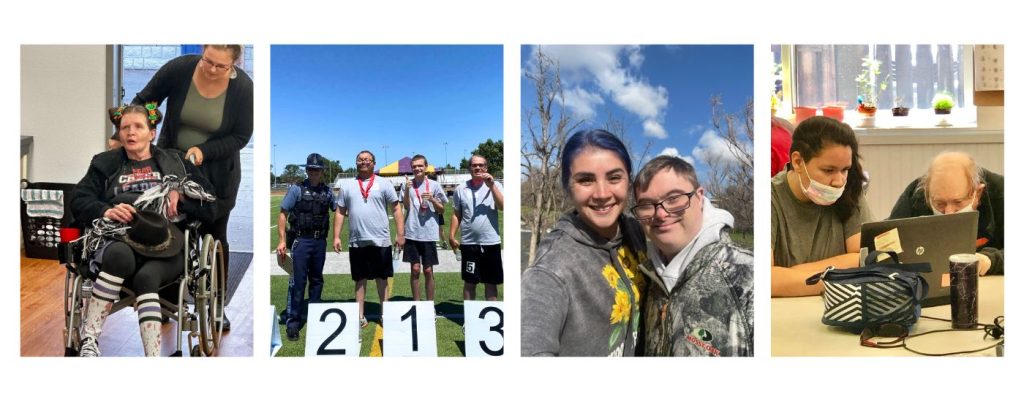
“Natural supports not only serve as a safety net but also help increase people’s material and social well-being. Natural support networks can significantly improve the quality of life of people with disabilities in a wide range of areas, from health to rights to community integration to self-determination. As such, it is important to maximize people with disabilities’ opportunities to form and connect with natural support networks, including based on their shared interests and desires.” [3]
“Natural Supports generally refer to unpaid relationships. However, these relationships may develop out of paid services or interactions. Relationships do evolve and change over time.” [6]
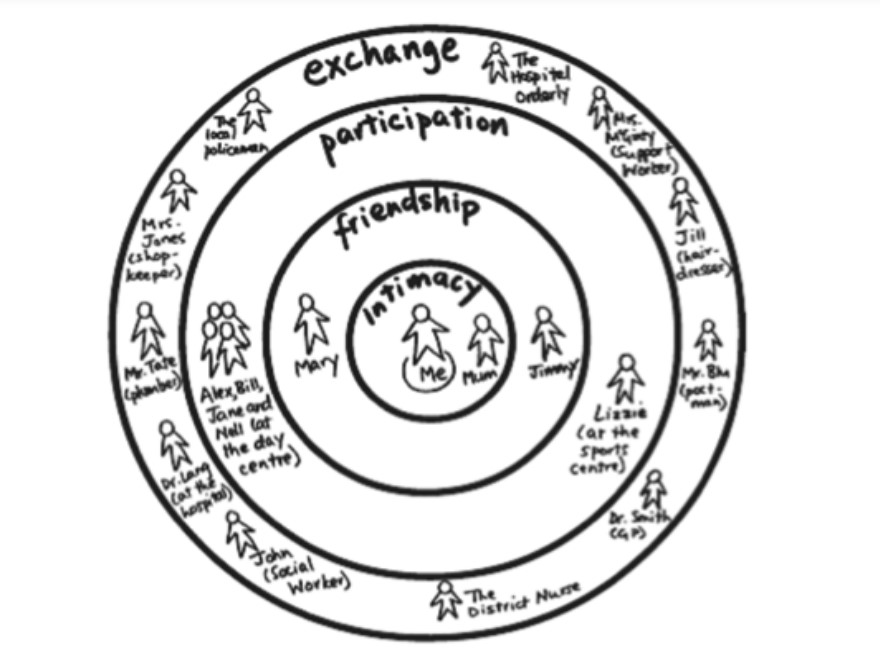
Benefits of Having Natural Supports Include:
- “People who have few advocates in their lives need their paid supporters to assist them in finding meaningful relationships.
- Having a support system promotes independence and acceptance while providing solutions to problems when needed
- Natural supports are people’s “safety nets” when life doesn’t go as planned
- They serve as a learning tool to support the individual’s overall growth and development.” [6]
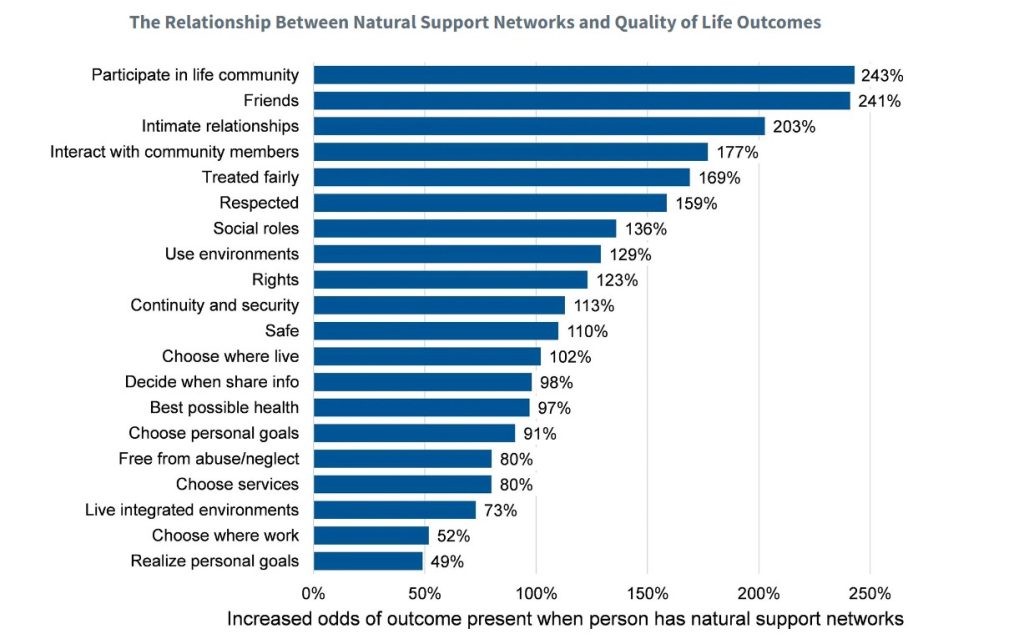
Some ways to build natural supports include:
- “Participate in community activities and projects – Help out on a “Clean City Day” collecting recyclables. Join in “A Day of Caring” where groups help out in projects throughout the town or city.
- Join groups and clubs – Check out groups for people with disabilities such as Special Olympics and Best Buddies, as well as groups and clubs open to people of all abilities in your community. If you are in school, get involved in extracurricular clubs and youth groups like boy scouts or girl scouts, sign up for summer camps.
- Socialize with family and neighbors.
- Explore work opportunities – Think about what you like to do. Visit work sites where people do things that interest you. Find out if you can work as an intern or volunteer to see if you like that kind of work.
- Attend church and faith-based activities outside of traditional worship services.
- Volunteer – Love animals? Volunteer at the Humane Society. Like to help others? Volunteer at a food pantry. Like sports? Volunteer at a Boys & Girls Club.” [5]
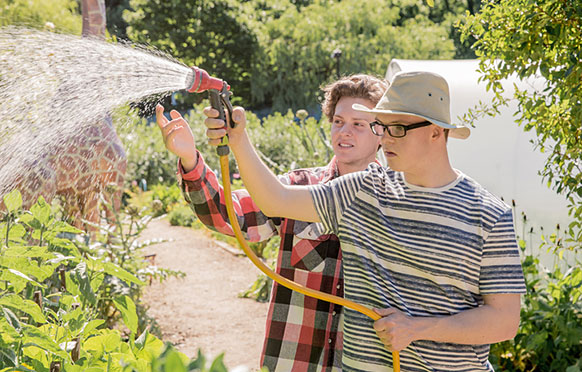
“Building natural supports takes time, skill and intention, and the only way to get started is by connecting with a variety of people in everyday community spaces, recreational activities, workplaces, faith communities and schools. Many people with developmental disabilities will also require paid supports to meet their needs, but natural supports will always be – for all of us – an integral part of a healthy, vibrant, good life.” [7]
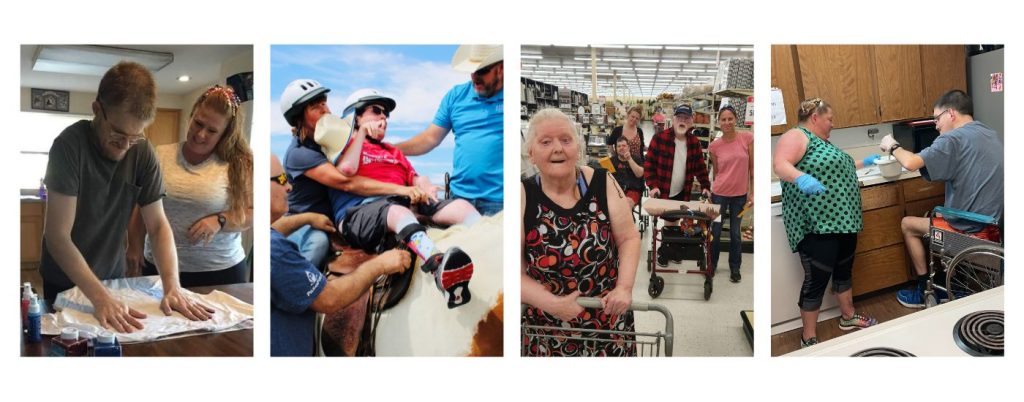
Resources
[1] https://link.springer.com/article/10.1007/s10882-023-09922-8
[2] https://ivypanda.com/essays/natural-supports-for-individuals-with-disabilities/
[3] https://www.c-q-l.org/resources/articles/natural-supports-improve-every-area-of-quality-of-life/
[4] https://www.twc.texas.gov/files/partners/vr-sfp-ref-sheet-natural-support.pdf
[5] https://www.arcind.org/supports-services/natural-supports/
[6] https://www.inreachnc.org/images/pdfs/naturalsupports.pdf
[7] https://inclusionalberta.org/connections/what-the-heck-are-natural-supports-anyway/
